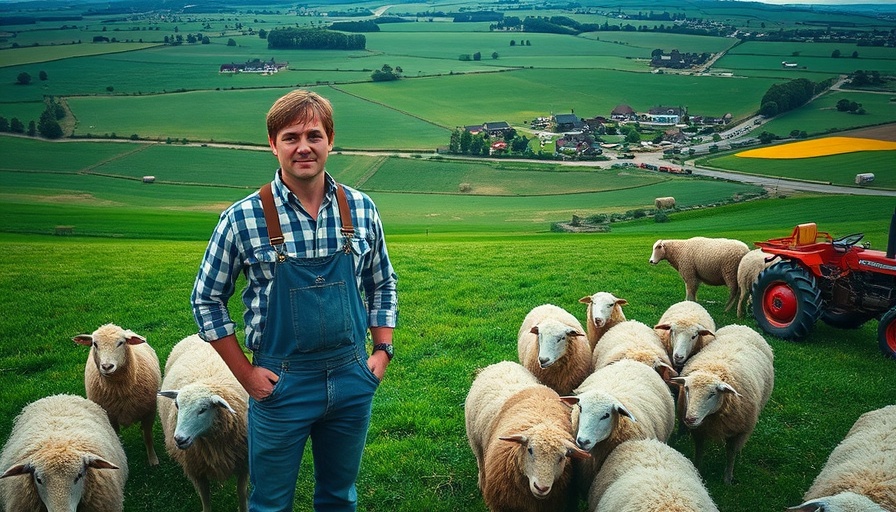
Understanding Urban Farming: A Guide to Self-Sufficiency
For many, the dream of developing a farm stems from the desire to cultivate a reliable source of organic food for family and community. Urban farming—a practice defined by the cultivation of food in urban spaces—has gained popularity, especially among individuals aged 25-55 who are aiming for sustainable agriculture and self-sufficiency. With challenges akin to traditional farming, such as fluctuating weather patterns and market demands, there are ways to navigate the urban agriculture landscape successfully.
Nine Simple Rules for Aspiring Farmers
So, what are the foundational steps to developing your own farm? Let’s explore nine simple rules that emerging farmers can adopt to enhance their journey toward creating a sustainable farming practice.
1. Immerse Yourself in Knowledge
Education is paramount. Regardless of your background, it's vital to be continuously learning. There are numerous resources available such as books, online courses, podcasts, and community groups focused on urban farming. Engaging with others already involved in farming—whether through local gatherings or online forums—can provide invaluable insights.
2. Cultivate a Sense of Humor
Farming is not just about plowing fields; it requires patience and resilience. Challenges like pest infestations, bad weather, or equipment breakdowns can test your resolve. Adopting a humorous perspective can alleviate some stress, reminding you to embrace both the wins and the losses in your agricultural journey.
3. Focus on Your Passion
Deciding what crops or animals to raise is crucial. Choose to grow what excites you, whether that’s vibrant vegetables, fragrant herbs, or free-range poultry. Cultivating your passion will make the arduous tasks of farming feel rewarding.
4. Match Your Land to Its Use
Your urban farming success hinges on understanding the characteristics of your land. For instance, certain plants thrive in specific climates and soil conditions. If you have a rooftop garden, consider implementing vertical farming techniques or hydroponics to maximize your output.
5. Define Your Market
Before planting your first seed, it’s important to identify your target market. Are you growing for personal consumption, local farmers’ markets, or even community-supported agriculture (CSA) initiatives? Understanding your audience gives direction to your farming decisions.
6. Set Realistic Goals
As you venture into urban farming, it’s essential to set achievable goals. Maybe your first year is focused on supplying your family with fresh vegetables rather than dominating the local market. Being aware of your limits can prevent burnout and keep your motivation alive.
7. Start Small and Scale Up
It’s tempting to want to cultivate a vast expanse right off the bat, but starting small can allow you to refine your techniques and manage your resources efficiently. As you gain experience, you can expand your garden or diversify the crops you grow.
8. Embrace the Community
Farming isn’t a solitary pursuit. Collaborating with neighbors through community gardens or urban farming initiatives can instill a sense of belonging and support while contributing to sustainability efforts. By sharing resources and knowledge, you enhance the community and foster growth for all.
9. Be Open to New Technologies
Urban farming benefits greatly from innovation. Explore methods like hydroponics, aquaponics, or vertical farming, which minimize space use while maximizing yield. Technologies in urban agriculture can help you adapt and flourish in a limited landscape.
The Growing Importance of Sustainable Practices
As the world increasingly shifts towards sustainability, practices that respect the environment and promote biodiversity are becoming paramount. Sustainable practices not only benefit the planet but also enhance food security and community resilience.
A Future in Urban Farming
The future of farming lies within cities, turning rooftops into productive spaces and transforming community gardens into hubs of biodiversity and shared knowledge. Urban farming cultivates not only food but also a richer, more sustainable culture that empowers individuals to connect with their food sources.
Take the First Step Towards Urban Farming
Starting your own farm, no matter how small, can have a tremendous impact on your community and personal well-being. Take these insights to heart, embark on your journey into urban agriculture, and discover the joys of growing your own food.
 Add Row
Add Row  Add
Add 




 Add Row
Add Row  Add
Add 

Write A Comment